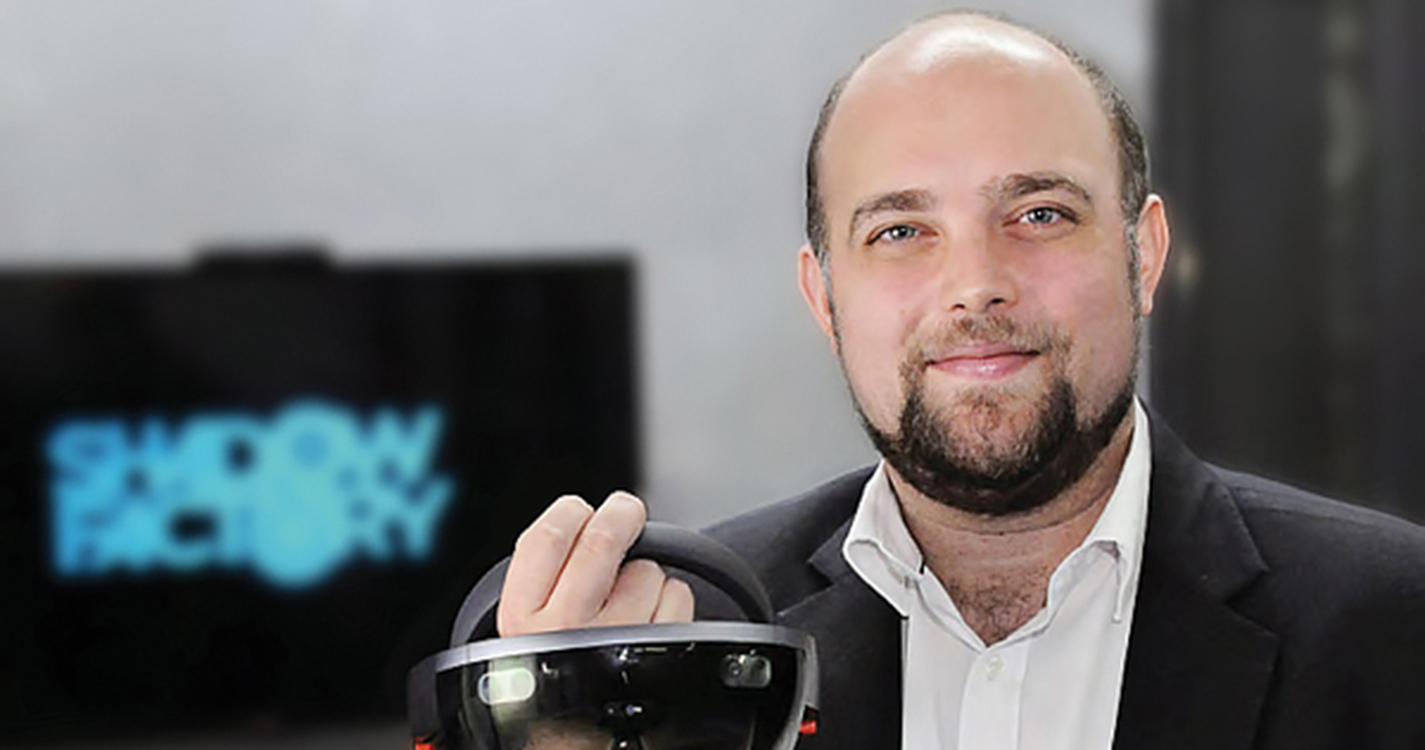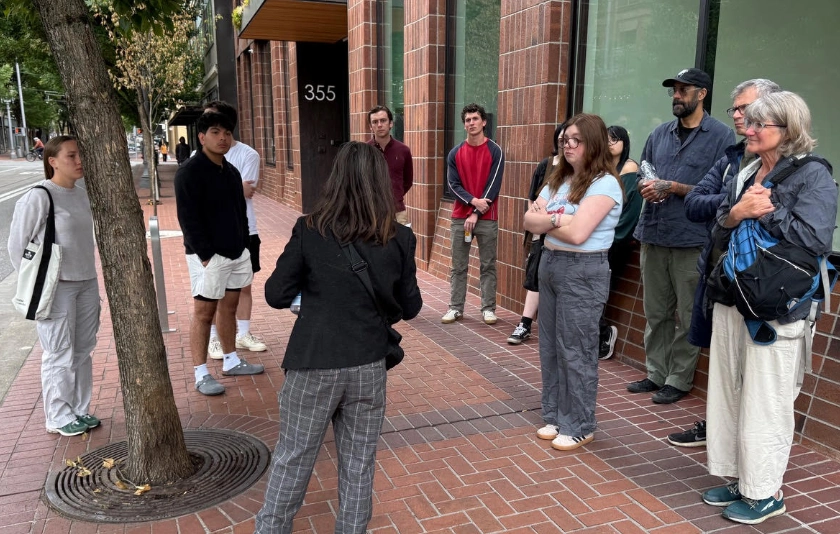If you’ve seen the extraordinary virtual sets in the “The Mandalorian,” you have some idea of what Devin Ehrig ’06 does for a living.
At the forefront of technology that’s revolutionizing the entertainment industry, the company Ehrig works with uses video game software to create immersive, can’t-believe-it’s-not-real environments — from standing outside an Egyptian tomb in 25-mile-an-hour winds to walking around a spartan kitchen — that can be captured in real time.
But that’s just one aspect of Ehrig’s whirlwind career, which spans the worlds of tech, entertainment and finance. For nearly two decades, Ehrig has mostly lived in China, working with entrepreneurs and overseeing his own virtual and augmented reality ventures until his Hollywood roots came calling.
Vital to Ehrig’s initial success in Hong Kong is Professor of Chinese Studies Juwen Zhang, who offered him an extraordinary opportunity to be among Willamette University’s first students to study in China. More importantly, Zhang taught him how to approach a new culture without a transactional mindset.
“You don’t approach another culture or another people with the goal of ‘getting something’ from them,” he said. “Zhang taught me that you’ll do more, make more friends and have more success becoming comfortable with yourself in and around people from a foreign culture. I think that’s what kept me there for 20 years — without that background, it would have been a different experience.”
Exploring China
Raised between Los Angeles’ entertainment industry and small family business life in Hawaii, Ehrig’s fast-paced lifestyle included exposure to Mandarin before he applied to Willamette.
His dad was a Teamster-turned producer who worked behind the scenes on daily film production; his mom was a teacher as well as a professional actress with experience as a stunt-person. During his senior year of high school, he joined a new Chinese culture and language program taught by a woman who used to work in Hong Kong.
For college, he sought a change. Willamette’s strong music department, a music scholarship for the viola and Zhang’s teaching style drew him in. On the first day of class, Zhang walked in and spoke no English.
“He tried to keep you immersed in the language, and I thought that was incredibly unique compared to rote learning the characters,” Ehrig said.
Following Zhang’s advice that learning the culture was essential to learning the language, Ehrig embraced the opportunity to study in China — first at Zhang’s alma mater in the northeast city of Shenyang and later for an extended study abroad. In the early 2000s, the northeast held advantages: the region’s Mandarin accent was more standard compared to other parts of the country, and fewer foreigners meant a more immersive experience.
At Willamette, Ehrig majored in Chinese Studies with a business focus. He was heavily involved with the Tokyo International University of America (TIUA) exchange program, bonding with Japanese students who remain his best friends today. After years of working and living in China, Ehrig says the program sets Willamette apart from other liberal arts schools.
“It can be very challenging as an expat in Asia, especially Japan and China, to try to study the local language and really make friends,” he said. “When you get there, you’ll only meet people who want to practice their English. But at TIUA, you have a chance to meet fellow students and form those friendships in a different setting, even living as roommates. You get to know people in a different way, and it can be a fantastic, fun experience.”
From Hong Kong to Hollywood
For nearly a decade after he graduated, Ehrig traveled between China and the U.S., working in private banking and manufacturing and earning a law and finance degree.
In 2015, when he was working in sales for a boutique merchant bank, he decided to get out of finance. He always knew he’d return to the entertainment industry. Film production and funding were dinner topics when he was young, and finance lacked artistry, he said.
Storytelling had long appealed to him. His friend Amit Chatterjee, who had a background in the animation industry, agreed that virtual reality was a powerful medium for it, so they formed Shadow Factory in 2016. The Hong Kong-based studio started with virtual reality headsets then expanded to all forms of immersive content, from video games to TV and film. Ehrig helped his company be among the first worldwide to develop augmented reality filters for Facebook and Instagram through the social media giant’s Spark AR platform.
In 2019, Hong Kong’s recession — fueled by the U.S.-China trade war and wide-scale protests — flipped Ehrig’s world upside down, forcing the team to downsize Shadow Factory. He returned to LA to raise the newest addition to his family, a baby girl, and started several companies that cemented his return to the entertainment industry.
He’s currently in the process of building a streaming TV show concept, LIVN, together with Scott Page, a guitarist for Pink Floyd who founded “live immersive experience and media company” Think:EXP. Ehrig also founded Escape Velocity, a company that applies predictive analytics to early stage film concepts to gauge audience reaction.
At Rogue Initiative Studios, a virtual production company founded by producer Pete Blumel of Dreamworks and “Call of Duty: Modern Warfare'' fame, Ehrig holds dual roles. He is VP of corporate strategy and director of virtual production, which has him overseeing the evolution of its business as the company develops several blockbuster feature films and AAA games, a classification that refers to large-scale development and design.
As he moves deeper into his career, he’s grown to appreciate his experience at Willamette more, both the lifestyle it introduced to him and the academics as a whole.
“I am a firm believer in the value of education in its own right, and as a tool to help discipline and structure your approach to understanding the world around you,” he said. “My classes helped me create a framework and structure of thought which served me well.”



